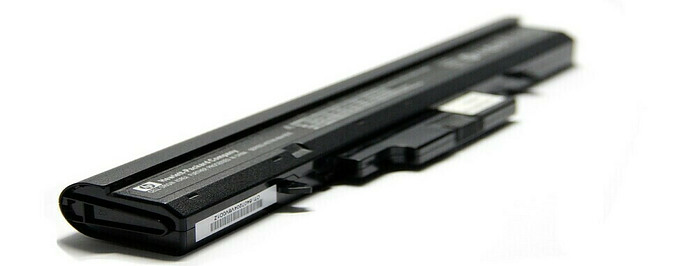
Imagine a world where your trusty laptop stays by your side, running smoothly for years. That’s not just wishful thinking. It’s a matter of understanding and action. In this article, we’re going to walk through the essentials of maximizing your laptop’s lifespan, setting the tone for why it’s crucial to pay attention to the small details that can make a big difference.
Now, you might see your laptop as a sturdy companion, but beneath the sleek exterior, it’s a complex machine where heat, dust, and time can take their toll. Knowing what negatively affects your laptop’s health is the first step towards taking better care of it.
To tie it all together, WHY does this matter? Because a well-maintained laptop isn’t just good for your wallet, it’s good for the environment, too. By keeping electronic waste down, you’re contributing to a healthier planet. So, let’s gear up to not just use our laptops, but to keep them running at their best for as long as possible.
Looking for a new laptop? Visit Amazon today for the latest laptop deals.
(As an Amazon Associate I earn from qualifying purchases.)
Assessing the Factors: What Shortens a Laptop’s Life?
Many laptop issues stem from several common factors, and understanding these can be pivotal in preventing an early retirement of your device.
Exposing a laptop to extreme temperatures, high humidity, or other harsh environmental conditions can damage its internal components. Heat, above all else, can be a laptop’s worst enemy. It accelerates the wear of components and leads to decreased performance over time. Processors and batteries are particularly vulnerable.

Batteries, speaking of which, have their own lifecycle. Every charge cycle gradually diminishes a battery’s capacity. A laptop that once lasted for hours might struggle to hold a charge after a few years of constant use. It’s an inevitable decline, but with care, it can be managed. Also, repeatedly draining the battery to 0% or keeping it at 100% for extended periods can reduce its overall lifespan. Modern lithium-ion batteries perform best when kept between 20% and 80%.
Then, there are adverse power conditions. Exposure to power surges can damage the laptop’s power supply and other components.
Dust and dirt can also be a factor. Dust and dirt accumulating inside the laptop can block ventilation and lead to overheating.
Then there’s the wear from regular use or, in some cases, intensive tasks that push a laptop’s hardware to its limits. The strain of running complex software or multitasking can take its toll on the hardware’s longevity. Over time, you might notice your laptop struggling with tasks it used to handle with ease.
And let’s not forget about physical damage, which is often a result of accidents or neglect. From spills to drops, the delicate internal components of a laptop can easily be damaged, leading to costly repairs or the need for a full replacement.
Each of these factors alone can affect your laptop’s health, but combined, they can significantly shorten its lifespan. The good news is that with a little knowledge and the right approach, you can mitigate many of these risks. This leads to the question: what should you expect in terms of a laptop’s lifespan, and how can your actions influence it?
Setting Expectations: The Ideal Laptop Lifespan
When purchasing a laptop, it’s reasonable to wonder how long it should last before the need for an upgrade or replacement becomes evident. Manufacturers often offer a standard warranty that hints at the minimum expected lifespan, which typically ranges from one to three years. However, with careful use, a laptop can often exceed the manufacturer’s expectations.
The longevity of your laptop is influenced by several factors, with usage patterns playing a pivotal role. For instance, machines used primarily for word processing and internet browsing tend to last longer than those frequently running high-intensity tasks like video rendering or gaming.

Moreover, as technology rapidly advances, software becomes more demanding. This means that a laptop that is capable of running current software smoothly might struggle with new software released a few years down the line.
It’s crucial to manage expectations realistically; a well-maintained laptop can last anywhere from four to six years, perhaps even longer, if you’re willing to make occasional upgrades. However, beyond this point, you might start experiencing diminished performance or hardware failures that signal it’s time to consider a replacement.
It’s also important to note that even with excellent maintenance, technological advancements might render a laptop obsolete over time, as newer software and applications require more advanced hardware specifications. Additionally, manufacturer support in terms of software updates and spare parts availability may diminish over time, influencing the practical lifespan of the laptop.
That being said, there are some crucial steps that can help extend your laptop’s operational span. Let’s explore these methods in the next section.
Laptop Longevity Tips: Extending Your Device’s Life
A laptop is a significant investment, and naturally, you’d want to get the most out of it. By taking proactive measures, you can significantly extend the life of your laptop. Here are some practical steps to help you do just that.
Battery maintenance is crucial. Your laptop’s battery life declines with each charge cycle. To slow down this process, avoid keeping your laptop plugged in at all times. Instead, try to keep the charge between 40% and 80%. Also, if you’re not using the laptop for extended periods and you can remove the battery, store the battery at a 50% charge in a cool place.

If you use the laptop in environments prone to power surges, using a surge protector can help mitigate the risk of damage to the laptop’s power supply and other components.
Overheating can severely shorten the life of your laptop. Ensure that your laptop has adequate ventilation; never block the air vents. Consider purchasing a cooling pad if your laptop tends to run hot, especially during heavy use, such as gaming or video editing.
Keeping your software environment optimized is another key factor. Don’t burden your system with unnecessary programs that can cause it to slow down or overheat. Regularly update your operating system, software, and drivers to patch security vulnerabilities and improve performance.
Cleanliness can go a long way in preserving your laptop. Dust and debris can clog the cooling fan, leading to overheating. Regularly wipe down your keyboard and screen, and use compressed air to gently blow dust out of the vents at least twice a year.
Overall, using the laptop in a clean, cool, and dry environment helps in maintaining its condition. Avoid eating or drinking over the laptop and try to always work with the laptop on a hard, flat surface.
Finally, consider upgrading components instead of purchasing a new laptop. Adding more RAM or swapping your hard drive for an SSD can breathe new life into an older machine, extending its usefulness without the need for a full replacement.
Conclusion: Embracing Laptop Longevity
In conclusion, the lifespan of your laptop hinges significantly on how well you treat it. In this article, we’ve explored practical steps focused on regular maintenance and proactive care; it’s clear that these measures can lead to a substantial difference in how long your laptop serves you.
 Adopting a routine that includes careful battery management, keeping your device cool, managing software efficiently, and cleaning your laptop can extend its life. Deciding to upgrade certain components may also be a cost-effective way to enhance performance without the need for a new purchase.
Adopting a routine that includes careful battery management, keeping your device cool, managing software efficiently, and cleaning your laptop can extend its life. Deciding to upgrade certain components may also be a cost-effective way to enhance performance without the need for a new purchase.
Remember, your laptop is an investment. And like any investment, it requires attention and care to maximize its value over time. As technology continues to evolve, keeping your laptop in good working order will not only save you money but will also allow you to keep pace with software advancements to some extent.
By focusing on the tips provided, you’re setting yourself and your laptop up for success. It’s worth noting that eventually, upgrading to new technology is inevitable; however, until that point, the emphasis should be on extracting the maximum performance and longevity from your current device.
Take these final thoughts to heart—care for your laptop, and it will care for your needs, keeping you productive and connected in this digital age.
I hope you found this article useful. I would love to hear what’s your experiences with laptop lifespans. Please let us know in the comments what is the longest that you have used a laptop for. Also, if you have any questions about this post, please feel free to reach out to me in the comments below and I will do my best to help you out.
If you are looking for a new laptop, visit Amazon today for the latest laptop deals.
All the best and best regards,
Walter
When you use the links on this page to make a purchase, I may get a small commission and you may get a great bargain. It’s a win-win all around. View the full disclosure here.
No responses yet